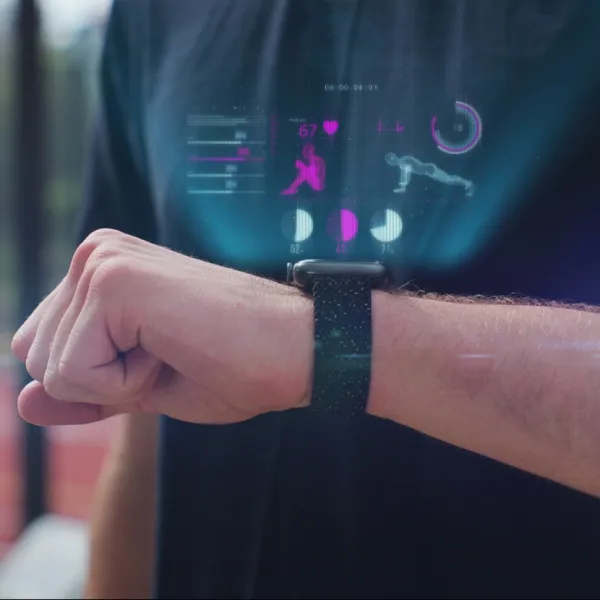The Best Digital Patient Engagement Tools Transforming Healthcare

The healthcare landscape is undergoing a digital revolution, with patient engagement at the forefront. Modern healthcare systems are increasingly relying on digital tools to foster better communication, enhance patient outcomes, and streamline clinic operations. From telehealth platforms to wearable devices, these tools empower patients to take control of their health while also making healthcare providers’ workflows more efficient.
In this article, we will explore the best digital patient engagement tools, their benefits, and how healthcare providers can implement them effectively.
What Are Digital Patient Engagement Tools?
Digital patient engagement tools are technology-driven solutions designed to improve communication between patients and healthcare providers. They enable patients to manage their health more efficiently and make informed decisions.
These platforms include a variety of resources such as mobile health apps, patient portals, telehealth services, and wearable devices that help healthcare providers collect real-time data on patients' health, improving the quality of care. These tools not only enhance the patient experience but also enable healthcare providers to improve outcomes and optimize their operations.
Top Digital Patient Engagement Tools
The digital healthcare ecosystem is rich with tools that make patient engagement easier, faster, and more impactful. Let’s dive into the top tools that are making a significant difference in healthcare today.
Mobile Health Apps: Personal Health Management in Your Pocket
Mobile health apps have become one of the most popular and accessible tools for patient engagement. These apps offer patients the ability to manage their health from their smartphones. Patients can track their vital health metrics, including weight, blood pressure, and glucose levels, empowering them to take charge of their health. Many apps also offer features that remind patients to take their medications on time, ensuring adherence to prescribed treatment plans.
Scheduling appointments is another convenient feature of these apps, as patients can easily book, reschedule, or cancel appointments directly from their phone, enhancing efficiency in clinic operations.
Furthermore, many mobile health apps include educational resources, providing patients with valuable information on health conditions and treatment options to help them make informed decisions about their care.
Telehealth Platforms: Bringing Healthcare to Your Doorstep
Telehealth platforms have transformed the way healthcare is delivered, particularly in the wake of the pandemic. These platforms enable remote consultations between patients and healthcare providers, eliminating the need for in-person visits. Patients can schedule and participate in video consultations, which has proven especially useful for individuals with mobility issues or those living in rural areas. In addition to video calls, these platforms also offer secure messaging, allowing patients to communicate with their healthcare providers confidentially.
For patients with chronic conditions, telehealth platforms facilitate remote monitoring, enabling providers to track their progress and adjust treatment plans accordingly. Many telehealth systems also include the ability for healthcare providers to send e-prescriptions, streamlining the process of obtaining medication without requiring an in-person visit to the doctor’s office.
Patient Portals: Centralizing Your Health Information
Patient portals are secure online platforms that give patients access to their health records, test results, and other important medical information. These portals serve as a hub for patients to manage their healthcare needs, providing easy access to critical health information at any time. By allowing patients to view their medical history, test results, and current prescriptions, patient portals give them greater control over their health.
These platforms also facilitate direct communication between patients and healthcare providers, allowing for more efficient and timely exchanges of information. Furthermore, patient portals offer tools for managing appointments, making it easier for patients to schedule, cancel, or reschedule their visits without the need for phone calls or paperwork.
Wearable Devices: Tracking Health in Real-Time
Wearable health devices, such as fitness trackers and smartwatches, have become essential tools for engaging patients in their health journey. These devices provide real-time data on various health metrics, including heart rate, activity levels, and even sleep patterns.
This continuous monitoring allows patients to track their progress and make adjustments to their lifestyle based on real-time feedback. Many wearables also feature alerts and notifications, prompting patients to take action when certain health thresholds are crossed, such as an unusually high heart rate or inactivity. With their ability to provide instant insights into a patient’s physical condition, wearable devices have proven valuable in managing chronic diseases, improving fitness levels, and promoting overall health and well-being.
Benefits of Digital Patient Engagement Tools
Digital patient engagement tools offer numerous advantages to both patients and healthcare providers. By enabling patients to actively participate in their care, these tools lead to improved patient outcomes. When patients engage with their health data, they are more likely to adhere to treatment plans, make informed decisions, and monitor their progress, which leads to better long-term health outcomes.
Additionally, these tools enhance patient satisfaction by providing them with greater access to their health information and offering more convenient ways to communicate with healthcare providers. This improved communication fosters trust, which is crucial for building long-term patient relationships. For healthcare providers, digital tools increase efficiency by streamlining administrative processes, reducing paperwork, and allowing for better coordination of care. The ability to collect accurate, real-time data from patients through digital tools also helps healthcare providers make more informed clinical decisions, leading to more effective treatment plans and improved patient care.
Implementing Digital Patient Engagement Tools
Successfully implementing digital patient engagement tools requires thoughtful planning and consideration. The first step is assessing the specific needs of the patient population to ensure the tools selected are relevant and effective. Healthcare providers must also choose the right platforms based on their size, patient demographics, and services offered.
Once the tools are chosen, it's essential to provide comprehensive training for both staff and patients to ensure everyone can use the new technology effectively. Integration with existing systems, such as electronic health records (EHR) and practice management systems, is another critical step to ensure seamless workflows.
Promoting patient adoption is also essential, as patients need to understand the benefits of using these tools. Clear communication and user-friendly instructions can help patients become more comfortable with new technology. Finally, regular monitoring and evaluation are necessary to assess the effectiveness of these tools and identify areas for improvement.
Overcoming Challenges in Digital Engagement
Despite their many benefits, implementing digital patient engagement tools does come with challenges. Privacy and security concerns are a top priority, and healthcare providers must ensure that the platforms they use comply with regulations such as HIPAA to protect patient data.
Additionally, there can be barriers to technology adoption, especially among older or less tech-savvy patients.
Offering clear instructions, technical support, and hands-on demonstrations can help patients overcome these obstacles. Integration with existing systems can also present difficulties, particularly if the digital tools are not compatible with the current infrastructure. Working closely with technology providers and performing regular testing can help address these issues.
The Future of Digital Patient Engagement
The future of digital patient engagement tools is promising, with emerging technologies set to enhance the patient experience further. Artificial intelligence (AI) and machine learning are expected to play a larger role in personalizing patient care, offering tailored health recommendations, and predicting health outcomes based on patient data. Virtual reality (VR) and augmented reality (AR) technologies are also on the horizon, with potential applications in patient education, therapy, and rehabilitation.
Additionally, blockchain technology may revolutionize health data security, offering enhanced privacy and transparency, and ensuring patients can trust the systems that manage their sensitive information.
Conclusion
Digital patient engagement tools are revolutionizing the healthcare industry by improving communication, enhancing patient outcomes, and increasing operational efficiency.
As technology continues to evolve, these tools will become even more essential in delivering patient-centered care. Healthcare providers who embrace these tools and invest in training, integration, and patient adoption will be well-equipped to lead the charge in this new era of digital healthcare.
Stay tuned for more such updates on Digital Health News.
Stay tuned for more such updates on Digital Health News





























